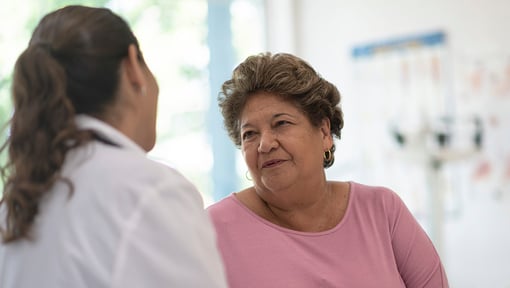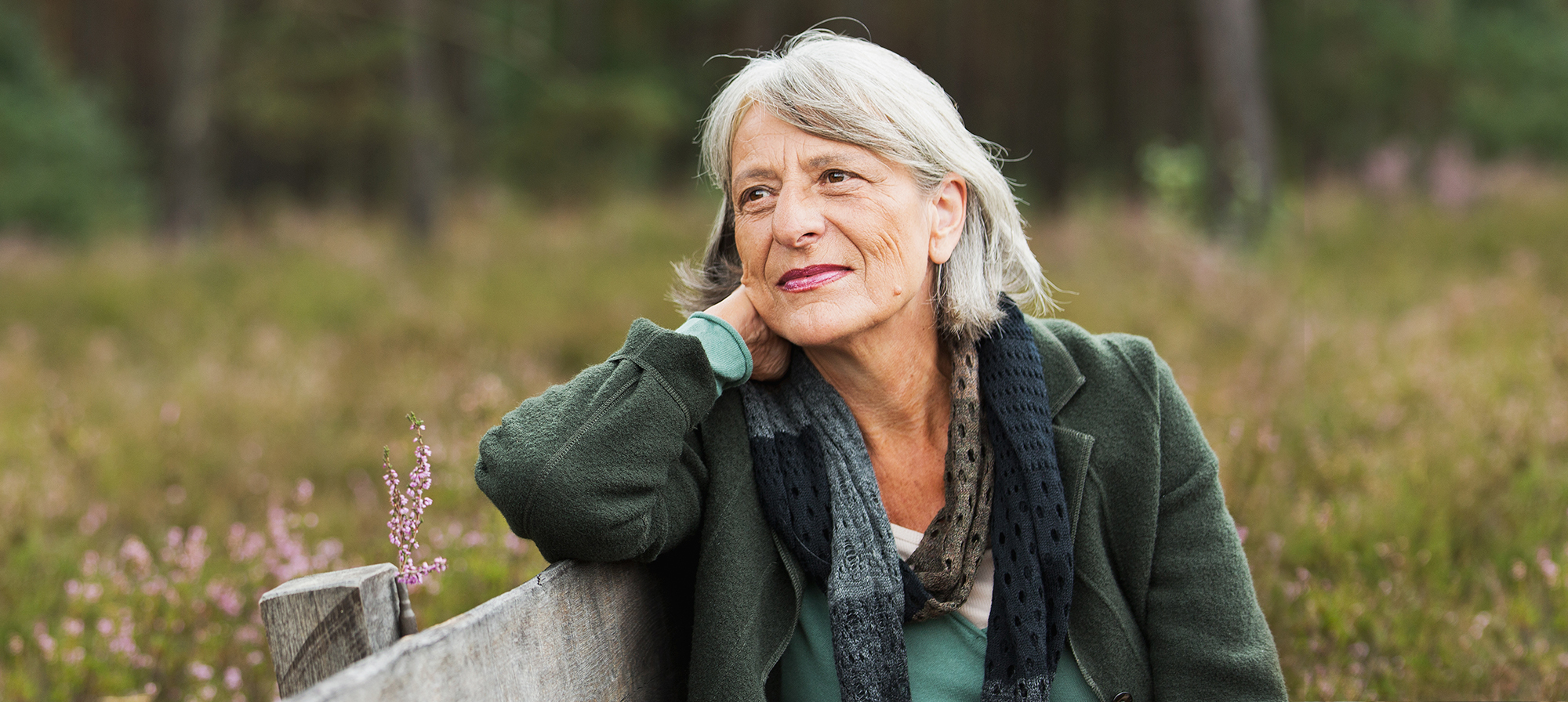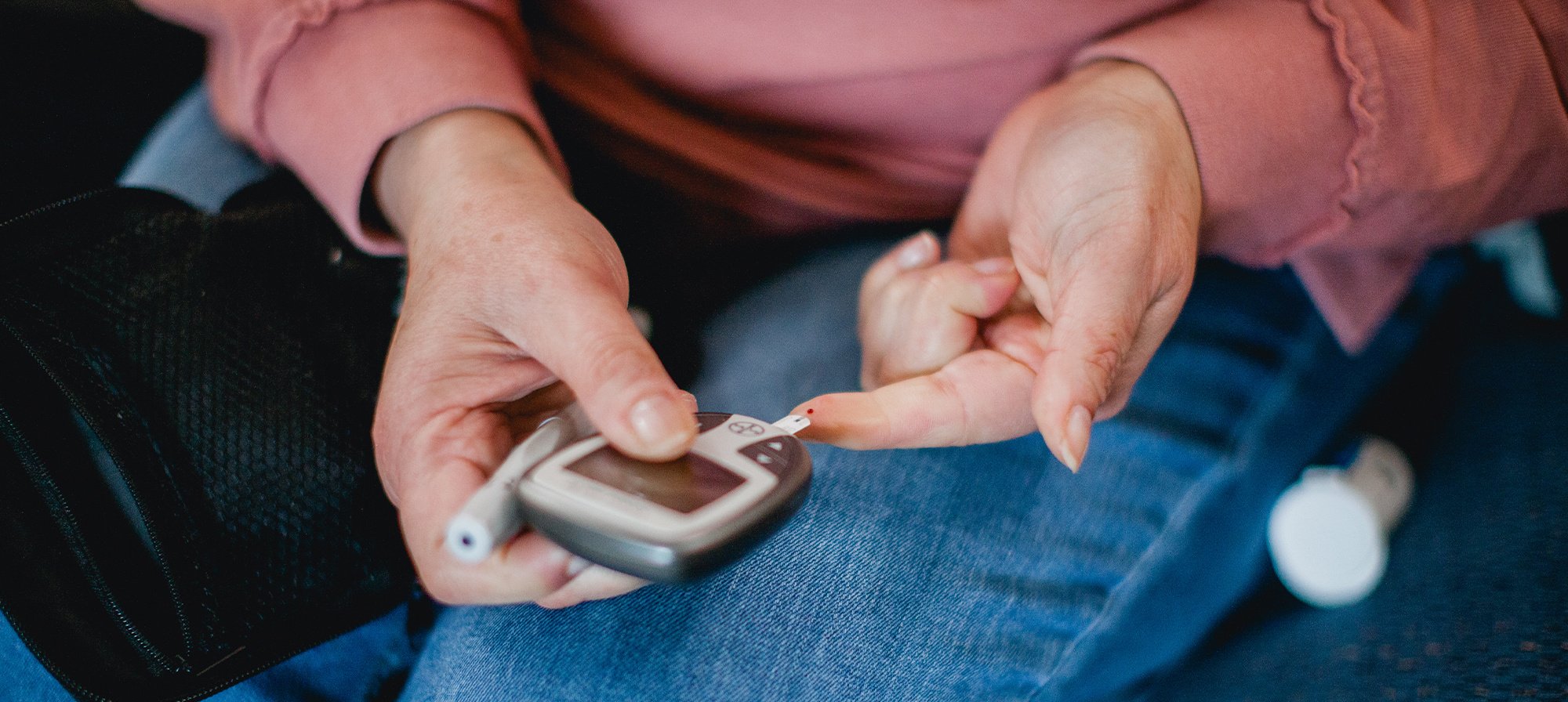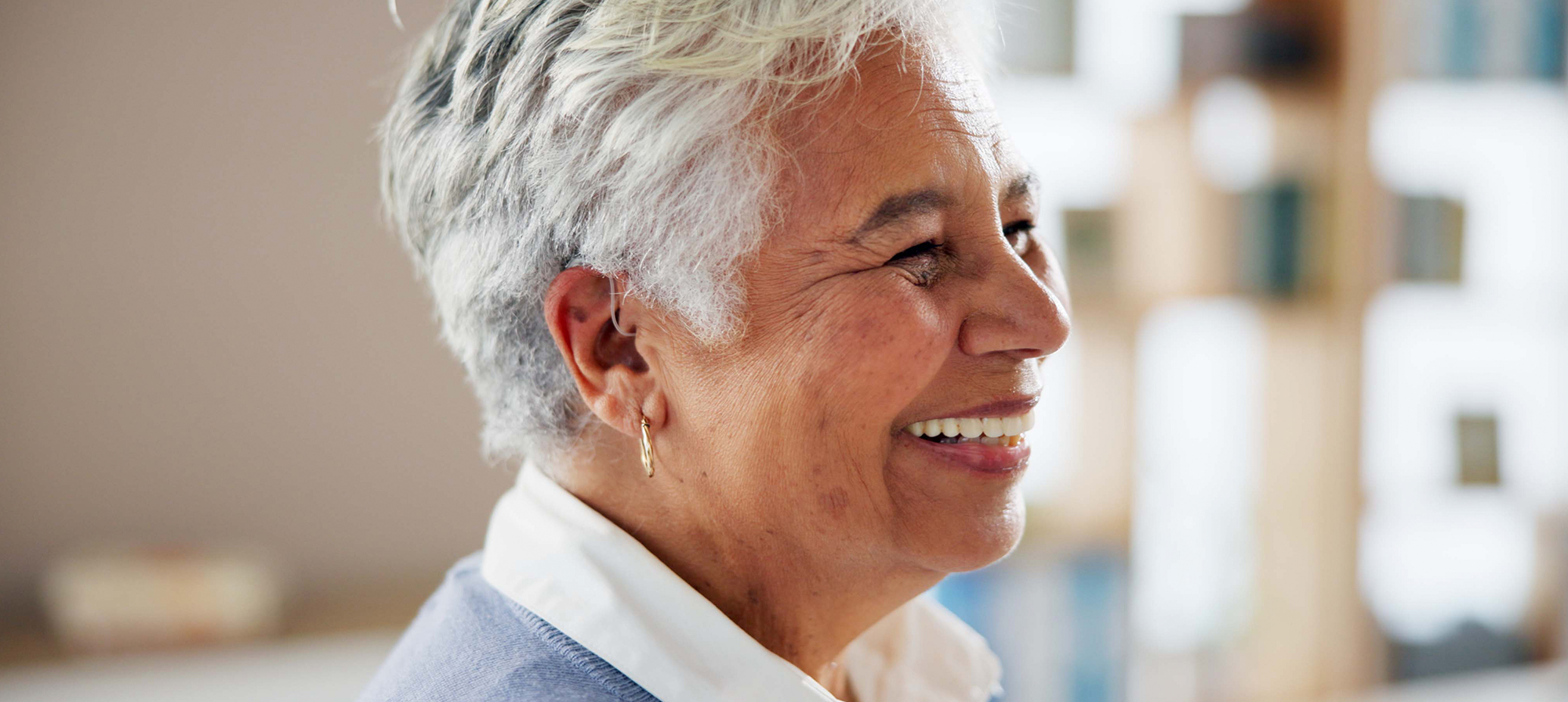If the weight of the world has you feeling down, stressed, or anxious—take comfort. You can take steps to get your mental health back on track and help make the world a better place.
Trying times are nothing new. But in the past few years, bad news seems to be on the rise. Topping the headlines: a pandemic that has held on longer than expected, a fickle economy, social unrest, conflicts abroad, and growing concerns about the environment.
Some mental health experts say these world events have merged to form a “perfect storm” that is dialing up levels of stress, anxiety, and depression . Even if you’re a resilient sort—the kind of person who stays calm in a crisis—you might feel more thrown off-center than usual these days. So do a lot of other folks.
Take Alex, for example, an editor from California.
“I’m usually good in a short-term crisis. I tend to focus on finding a solution and then the problem gets resolved,” she said. "Or else I just make peace with it and ride it out. Then things get back to normal after a while.
“But the last couple of years haven’t worked that way,” Alex went on to explain. “There are so many overlapping crises. There’s no clear solution to any of them. And there seems to be no relief from the stress. I’ve had to find tricks for living well despite the ongoing turmoil."
Like Alex, you can find ways to cope with the upheaval, lessen your anxiety, and restore your hope. And the same steps may help make the world a better place in the bargain. Here are a few ways to rise up when the world is getting you down:
Tune in to your feelings
Take note of what you're feeling when you think about world events. Intense or lingering anger, frustration, guilt, grief, or hopelessness is normal in troubling times. But such feelings can also be signs of depression or anxiety. Big changes in your appetite or sleep may be red flags, as well. If you’re seeing any of these changes, talk with your doctor right away.

Channel your feelings into positive action
It’s tempting to shut down when you feel angry, scared, or hopeless. But researchers have found that taking action is usually the healthier path. Taking action—on your own or with others—makes you a part of the solution. It’s a powerful way to ease stress, build resilience, and restore hope . No matter what you’re feeling about the state of the world, let it empower you to fuel change for the better.
If you’re stressed about social or political problems, you might donate time or money to one or more of those causes. Search online for reputable groups working toward solving problems. If you’re feeling overwhelmed by eco-anxiety , you can learn about ways to lower your own carbon footprint. Contact your lawmakers about your concerns. Or write letters to editors of news organizations.
In the face of issues that feel so big, it can also be helpful simply to focus on what you can control in your daily life.
“I set aside some time every day to meditate,” Alex said. “I pick up litter when I’m out for walks. I find ways to remind myself that I have a lot of control over my well-being. I can choose how I influence and experience my world.
“Taking action, even small steps, has helped me regain my sense of agency.”

Work with others who share your concerns
Taking action on your own is a powerful tool for change. But working with like-minded people helps build community and find collective solutions. That in turn can lend emotional support and help ease fears.
“This moment in time is extraordinary,” Alex said. “We’re not just seeing the worst of humanity right now. We’re also seeing the very best. There are people doing tireless work to make the world better. It makes me want to contribute.”
You might join a group that helps towns stricken by natural disaster. You could volunteer with others to pick up litter or plant trees. Or you might work with groups who reach out to voters about upcoming bills that will help solve a problem you care deeply about.
“We’re part of a piece of history that will never be forgotten. And we’re all in it together,” continued Alex. “We’re accomplishing great things against big odds. That, for me, is pretty awe-inspiring.”

Adopt lifestyle changes to make the world a better place
What small things could you do to make changes for the better? If you are worried about greenhouse gases, you might carpool or eat a more plant-based diet . Or you could shift your investment portfolio from fossil fuels to clean energy. If you worry about social divisions, think about befriending people who have different views from yours.
To get ideas, search online for sites that suggest changes you might make in your own life. Or talk to like-minded people about the changes they’re making.

Reframe overly negative thinking about the world
With bad news stories dominating media outlets, it’s easy to focus on the bad and overlook or downplay the good. That can skew your view about the state of the world.
Keep in mind that there is still a lot of good in the world. There are people, corporations, nonprofits, and governments looking for solutions and working to make the world better on all fronts.
So, try to look at the big picture. It’s not about sweeping your concerns under the rug. It’s about having a more balanced, realistic view of the world. Doing so may help you cope.
You might benefit from taking breaks from the news and social media posts about troubling world events. Keep in mind that the news media tend to focus much more on bad news than good. So, when you do consume media, be sure to practice critical thinking.
And take breaks each day to do something fun and relaxing. Watch a funny movie. Take a brisk walk. Savor the awe you feel when out in nature. Do some deep breathing. Cuddle with your dog or cat. Or talk with a friend. These things can bring you joy and relief. They can build your sense of gratitude, which can support better well-being.

Learn to accept and live with uncertainty
Pinpoint what you can and can’t control. Try to find a way to accept or live with those things you can’t control. Then focus on the solutions to the world’s problems that you can help with. Keep in mind that even when things seem really bad, you can still make a difference.
When bad news starts to feel unending, a certain amount of worry and sadness is normal. When you can, let those feelings fuel action for change. But, if you feel yourself sinking under the weight of it all, consider working with a mental health care provider.
One thing nearly everyone can be grateful for now is that the outdated stigma around mental health issues is giving way to a more open, constructive dialogue. There is greater acceptance of the need for and value of mental health care and wellness.
Tending to your mental health will not only help you cope. It will make you feel stronger. And it will put you in a better position to help change the world for the better.
Not a Silver&Fit® member? Learn more about everything the program has to offer, including more helpful healthy living tips like this, here on our website.
This information is not intended to take the place of regular medical care or advice. Please check with your doctor before using this information or beginning any self-care program.
Alex is not a member of the Silver&Fit Program. Her name has been changed to protect her privacy. Images used for this article do not depict Alex or any members of the Silver&Fit Program.
References
American Psychological Association. (2020). 2020 presidential election a source of significant stress for more Americans than 2016 presidential race. https://www.apa.org/news/press/releases/2020/10/election-stress
American Psychological Association. (2020). Stress in America: A national mental health crisis. https://www.apa.org/news/press/releases/stress/2020/report-october
American Psychological Association. (2020). Stress in America: A national mental health crisis: COVID-19 is a significant stressor for most Americans. https://www.apa.org/images/sia-2020-covid-stress_tcm7-279798.jpg
Barth, M., Masson, T., Fritsche, I., Fielding, K., Smith J. R. (2021, April). Collective responses to global challenges: The social psychology of pro-environmental action. Journal of Environmental Psychology, 1, 101562. https://www.sciencedirect.com/science/article/abs/pii/S0272494421000153
Baudon, P., & Jachens, L. (2021). A scoping review of interventions for the treatment of eco-anxiety. International Journal of Environmental Research and Public Health, 18(18), 9636. https://www.ncbi.nlm.nih.gov/pmc/articles/PMC8464837/
Belli, B. (2021, April 12). Yale researchers size up the mental health toll of the pandemic. Yale News. https://news.yale.edu/2021/04/12/yale-researchers-size-mental-health-toll-pandemic
Chabot, H. (2021). To survive a trauma like the capitol riot, it helps to discuss it. Northeastern University. https://news.northeastern.edu/2021/02/09/to-survive-a-trauma-like-the-capitol-riot-it-helps-to-discuss-it/
Cianconi, P., Betro, S., Janiri, L. (2020, March). The impact of climate change on mental health: A systematic descriptive review. Frontiers in Psychiatry, 6(11), 74. https://pubmed.ncbi.nlm.nih.gov/32210846/
Clayton, S. (2021, January). Climate change and mental health. Current Environmental Health Reports, 8(1), 1-6 https://pubmed.ncbi.nlm.nih.gov/33389625/
Clayton, S. (2020). Climate anxiety: Psychological responses to climate change. Journal of Anxiety Disorders, 74, 102263. https://www.sciencedirect.com/science/article/abs/pii/S0887618520300773
Columbia University. (2019, February 13). 6 reasons to be hopeful about fighting climate change. https://news.climate.columbia.edu/2019/02/13/hope-fighting-climate-change/
Eichstaedt, J. C., Sherman, G. T., Giorgi, S., Roberts, S. O., Reynolds, M. E., Ungar, L. H., Guntuku, S. C. (2021, September). The emotional and mental health impact of the murder of George Floyd on the U.S. population. Proceedings of the National Academy of the Sciences, 118(39), e2109139118. https://pubmed.ncbi.nlm.nih.gov/34544875/
Smith-Doo, L. (2022, January 17). Can we be hopeful and courageous in the face of climate change? University of Berkeley, Greater Good Science Center. https://greatergood.berkeley.edu/article/item/can_we_be_hopeful_and_courageous_in_the_face_of_climate_change?utm_source=Greater+Good+Science+Center&utm_campaign=b8f8ef5f42-EMAIL_CAMPAIGN_GG_Newsletter_January_20_2021&utm_medium=email&utm_term=0_5ae73e326e-b8f8ef5f42-51656799
Mayo Clinic. (2020). Resilience: Build skills to endure hardship. https://www.mayoclinic.org/tests-procedures/resilience-training/in-depth/resilience/art-20046311
National Center for Science and Education. (2020). Hope in the face of climate anxiety. https://ncse.ngo/hope-face-climate-anxiety
Rifkin, D. I., Long, M. W., Perry, M. J. (2018). Climate change and sleep: A systematic review of the literature and conceptual framework. Sleep Medicine Reviews, 42, 3-9. https://pubmed.ncbi.nlm.nih.gov/30177247/
Stanley, S. K., Hogg, T. L., Leviston, Z., Walker, I. (2021, March). From anger to action: Differential impacts of eco-anxiety, eco-depression, and eco-anger on climate action and wellbeing. Journal of Climate Change and Health. https://www.sciencedirect.com/science/article/pii/S2667278221000018
Taylor. S. (2020, December). Anxiety disorders, climate change, and the challenges ahead: Introduction to the special issue. Journal of Anxiety Disorders, 76, 102313. https://pubmed.ncbi.nlm.nih.gov/32992267/
University of California, San Francisco. (n.d.). Political stress. https://psychiatry.ucsf.edu/copingresources/politics
Weilnhammer, V., Schmid, J., Mittermeier, I., Schreiber, F., Jiang, L., Pastuhovic, V., Herr, C., Heinze, S. (2021). Extreme weather events in Europe and their health consequences: A systematic review. International Journal of Hygiene and Environmental Health, 233, 113688. https://pubmed.ncbi.nlm.nih.gov/33530011/
Yale University Climate Change Communication. (2020). Yale climate opinion maps, 2020. https://climatecommunication.yale.edu/visualizations-data/ycom-us/
This article was written by Gail Olson, edited by Candace Hodges, and clinically reviewed by Jossue Ortiz, DC.





